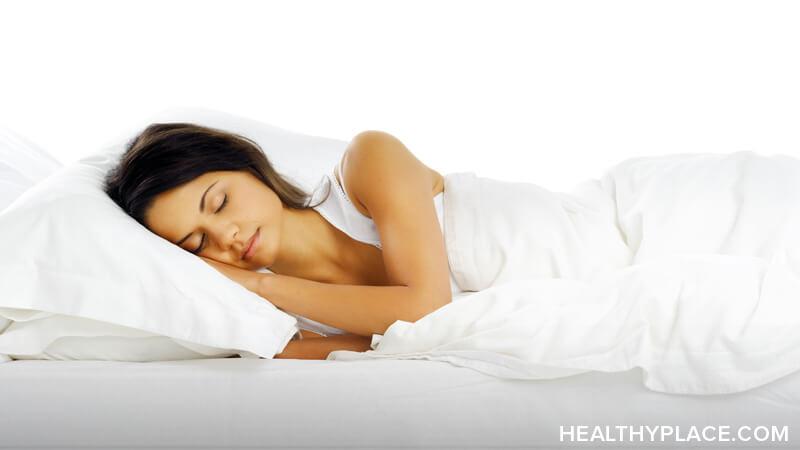Tips to Getting Sleep When You're Anxious

One of the symptoms of anxiety that I have experienced throughout my life is difficulty sleeping. During particularly stressful times in my life, I found that difficulty sleeping has been one of the most challenging anxiety symptoms for me to deal with. On the nights that I have a hard time sleeping, I end up falling asleep much later than I intended, and then I do not end up getting a restful night's sleep.
Why Anxiety Makes It Hard to Sleep
Even right now, with so many of us working from home and with altered work schedules, it can still be challenging to sleep, and to sleep well. The uncertainty in today's world can also contribute to the anxiety that we experience which may result in a lack of sleep.
One of the problems with not getting enough sleep is that it can affect your mood. You might find that you are especially irritable throughout the day and that, as a result, you experience even more stress, anxiety, and possibly even depression. Then, in turn, you might find that your mood makes it difficult to sleep, and thus you end up experiencing this cycle of anxiety and lack of sleep.
Overall, when you are experiencing anxiety, it is difficult for your brain to settle down. When we experience anxiety, it is not only emotional but physical as well. The body's physical symptoms of stress often include an increased heart rate and shortness of breath. These physical symptoms can also make it difficult to fall asleep. This is something that I have personally experienced in my life, and, unfortunately, become familiar with. This is one of the reasons that I have had to approach every night of sleep with very specific strategies to fall and stay asleep.
Tips for Getting Sleep When You Are Anxious
But there are some things that you can do to help you get enough sleep so that you can function and, hopefully, keep the cycle of anxiety and lack of sleep from continuously reoccurring. Here are a few strategies that I have found helpful for myself:
- Exercise regularly. I have talked about the benefit of exercise for coping with anxiety, and this is yet another way that it is helpful. However, it is important not to exercise right before bedtime as this may contribute to having difficulty falling asleep.
- Establish a bedtime routine. Try to establish a routine and cycle that your body can become accustomed to. Set a specific time for yourself that you will use to begin winding down and try to turn the lights out at the same time each night. If you allow your body to adjust to this, you may find that you begin to feel ready for sleep at the same time each night. I also find that this helps me to stay asleep throughout the night, thus improving the quality of the sleep I get.
- Wind down from electronics. This goes right along with establishing that bedtime routine. For many reasons, electronics can keep us awake, whether it is the light from the screen, or from reading an article that is anxiety-provoking. Make it a part of your nighttime routine to begin turning off electronics at least a half-hour before you turn the lights out. This is particularly challenging for me, as I often read the news and social media before bed.
These are just a few strategies that can be helpful for getting a good night's sleep. These techniques work for me, and it is important to figure out what works well for you.
Are there strategies that you use to combat the effects of anxiety on sleep, particularly during these uncertain times? Feel free to share them in the comments below.
APA Reference
Bermio-Gonzalez, R.
(2020, May 5). Tips to Getting Sleep When You're Anxious, HealthyPlace. Retrieved
on 2026, March 5 from https://www.healthyplace.com/blogs/treatinganxiety/2020/5/tips-to-getting-sleep-when-youre-anxious